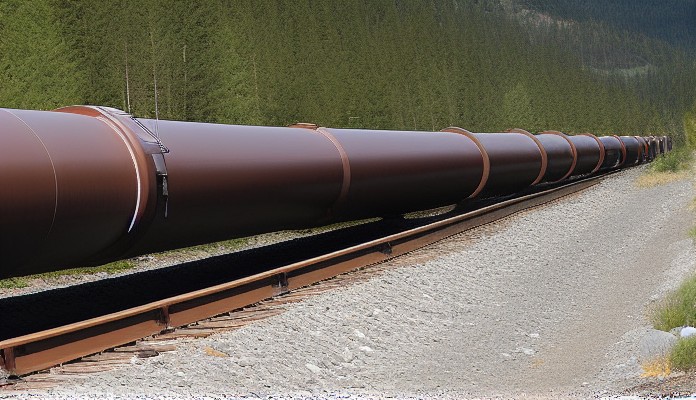FortisBC's 30km pipeline through Okanagan Valley rejected by Utilities Commission.
Politics
 FortisBC battles against decision by British Columbia Utilities Commission.
FortisBC battles against decision by British Columbia Utilities Commission.
---
Utilities Commission Rejects FortisBC Plan to Build 30-KM Pipeline for Okanagan
FortisBC has faced significant backlash from residents and environmental groups over its proposal to construct a 30-kilometer pipeline through the Okanagan Valley. However, their bid has been met with opposition by the British Columbia Utilities Commission (UC), which has rejected the project.
The Okanagan Valley is an economically important region in British Columbia, home to several large agricultural operations and a growing population of tourists. The valley's water resources are critical for both agriculture and domestic consumption, and the construction of a pipeline would have a significant impact on the area's ecosystem and wildlife habitats.
FortisBC submitted a proposal to build the pipeline in February 2020, seeking approval from the UC for the project. However, the company has faced numerous challenges since then, including legal action from environmental groups who oppose the pipeline's impact on the surrounding landscape.
In response to the rejection, FortisBC has announced that it will appeal the decision to the B.C. Supreme Court. The company has also filed an application for an injunction to prevent the UC from taking any further action against the proposal.
Despite these efforts, many residents and environmental groups continue to express concerns about the potential impact of the pipeline on the Okanagan Valley. The project's detractors argue that it could disrupt water sources, harm endangered species, and negatively impact local agriculture.
However, supporters of the project argue that the benefits of the pipeline outweigh the risks. They argue that the project would improve water management practices in the region, reduce reliance on fossil fuels, and provide much-needed energy for local communities.
Regardless of the outcome of the legal battle, the construction of the pipeline remains a contentious issue in the Okanagan Valley. While the UC has rejected FortisBC's plan, there is still time for the company to revise its proposal or seek alternative solutions.
In conclusion, while the rejection of FortisBC's proposal to build a 30-kilometer pipeline through the Okanagan Valley is a significant setback, it is not necessarily the end of the road for the project. There are still options available for the company to explore and implement their plan, and the community must continue to engage with the debate surrounding the pipeline. Ultimately, the future of the pipeline will depend on the input and decisions of both FortisBC and the broader community.






